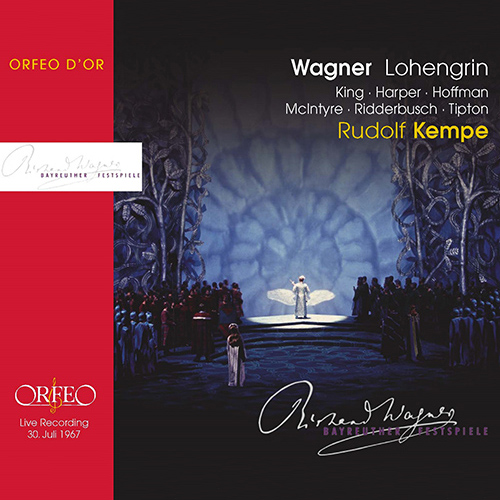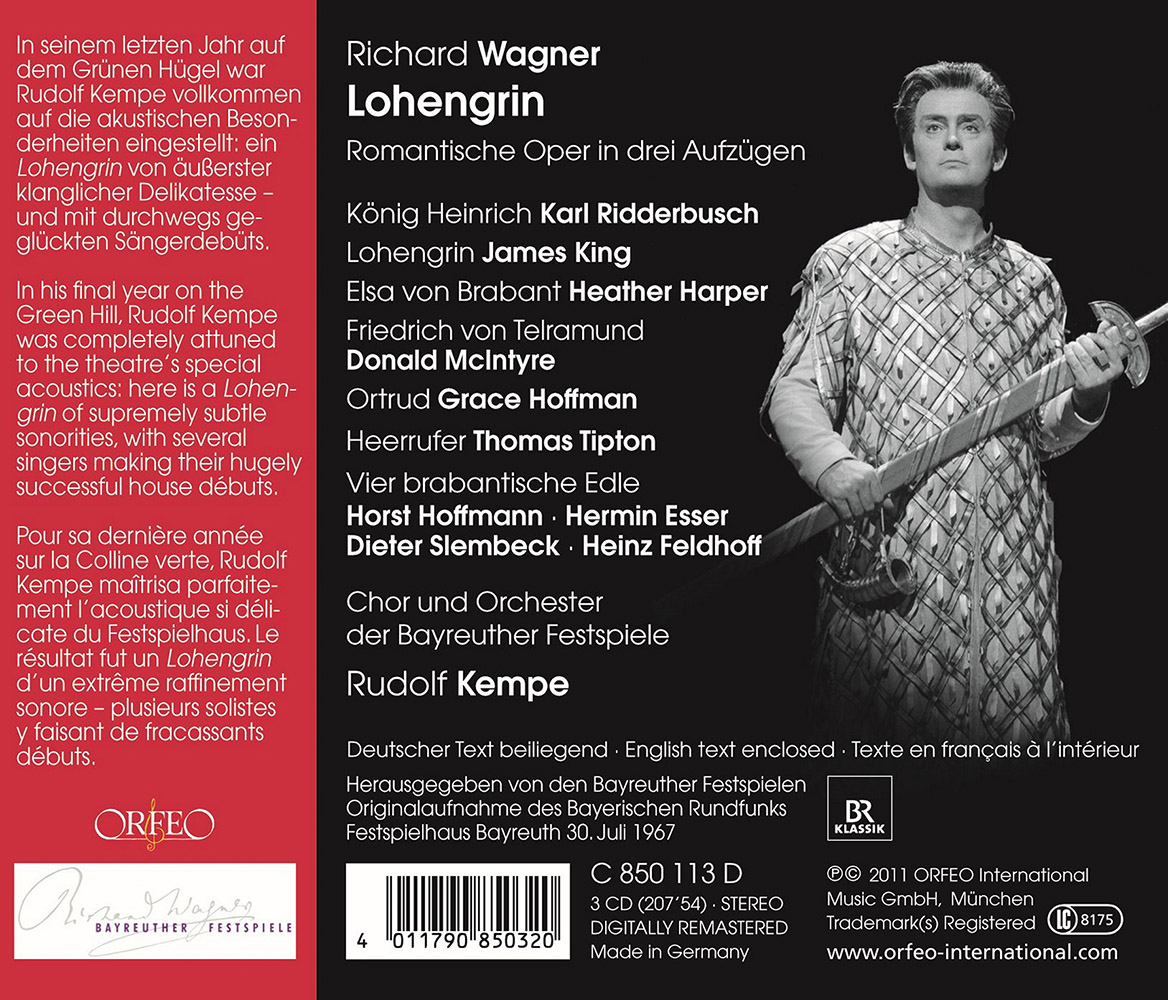Composer(s):
Conductor(s):
Orchestra(s):
Artist(s):
Genre(s):
Opera
Period(s):
Romantic
Label:
Orfeo
Catalogue No:
C850113D
Barcode:
4011790850320
Release Date:
11/2017
Available Format(s):
CD
Richard Wagner: Lohengrin (Bayreuth, 1967)
Lohengrin
2. Act I Scene 1: Hört, Grafen, Edle, Freie von Brabant! (Herald, Brabantines, The King, Saxons)
04:35
5. Act I Scene 2: Einsam in trüben Tagen hab' ich zu Gott gefleht (Elsa, All The Men, The King, Friedrich, Brabantines)
07:21
7. Act I Scene 2: Wer hier in Gotteskampfe zu streiten kam (Herald, All The Men, Friedrich, Elsa, Ladies, First and Second Chorus)
05:37
10. Act I Scene 3: Nun höret mich und achtet wohl (Herald, All The Men, Lohengrin, Friedrich, The King, Elsa, Ortrud, Ladies)
02:30
11. Act I Scene 3: Mein Herr und Gott, nun ruf ich dich (King, Elsa, Ortrud, Lohengrin, Telramund, Chorus)
05:18
12. Act I Scene 3: Durch Gottes Sieg ist jetzt dein Leben mein (Lohengrin, Chorus, The King, Elsa, Ortrud, Friedrich)
04:30
Disc 2
10. Act II Scene 3: Des Königs Wort und Will' tu' ich euch kund (Herald, Chorus, Four Nobles, Friedrich, Four Pages)
08:02
12. Act II Scene 4: Zurück, Elsa! Nicht länger will ich dulden (Ortrud, Elsa, Pages, Men, Women, Ladies)
08:38
13. Act II Scene 4: O König! Trugbetörte Fürsten! Haltet ein! (Friedrich, The King and Men, Ladies, Boys)
05:41
14. Act II Scene 4: Welch ein Geheimnis muß der Held bewahren? (The King and Men, Ladies, Boys, Friedrich, Ortrud, Lohengrin, Elsa)
05:10
Disc 3
1. Act II Scene 4: Mein Held entgeg'ne kühn dem Ungetreuen! (The King, Saxon/Brabantine Nobles, Lohengrin, Friedrich, Elsa, Ladies, Boys, Men)
07:15
11. Act III Scene 3: Tale of the Grail: In fernem Land, unnahbar euren Schritten …(Lohengrin, The King, Men, Women)
05:31
12. Act III Scene 3: Mir schwankt der Boden! Welche Nacht! (Elsa, Lohengrin, The King, Men, Women, Ladies)
01:24
Total Playing Time: 03:27:34

















